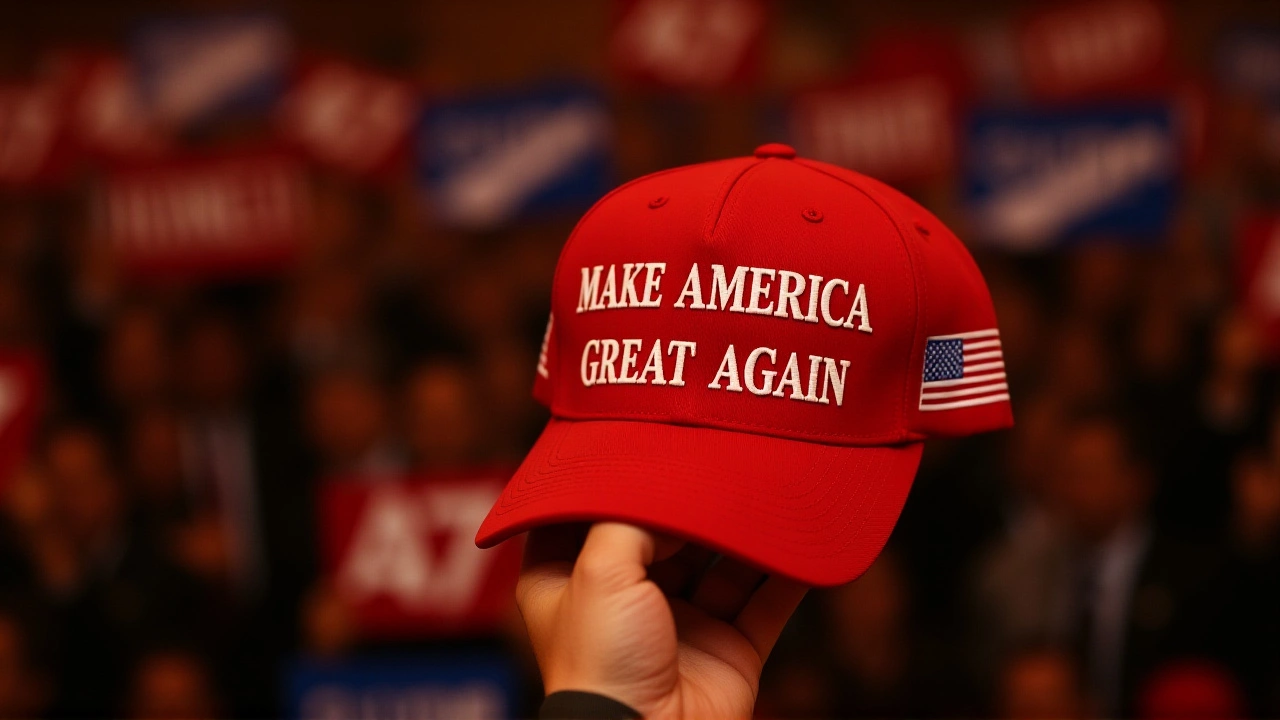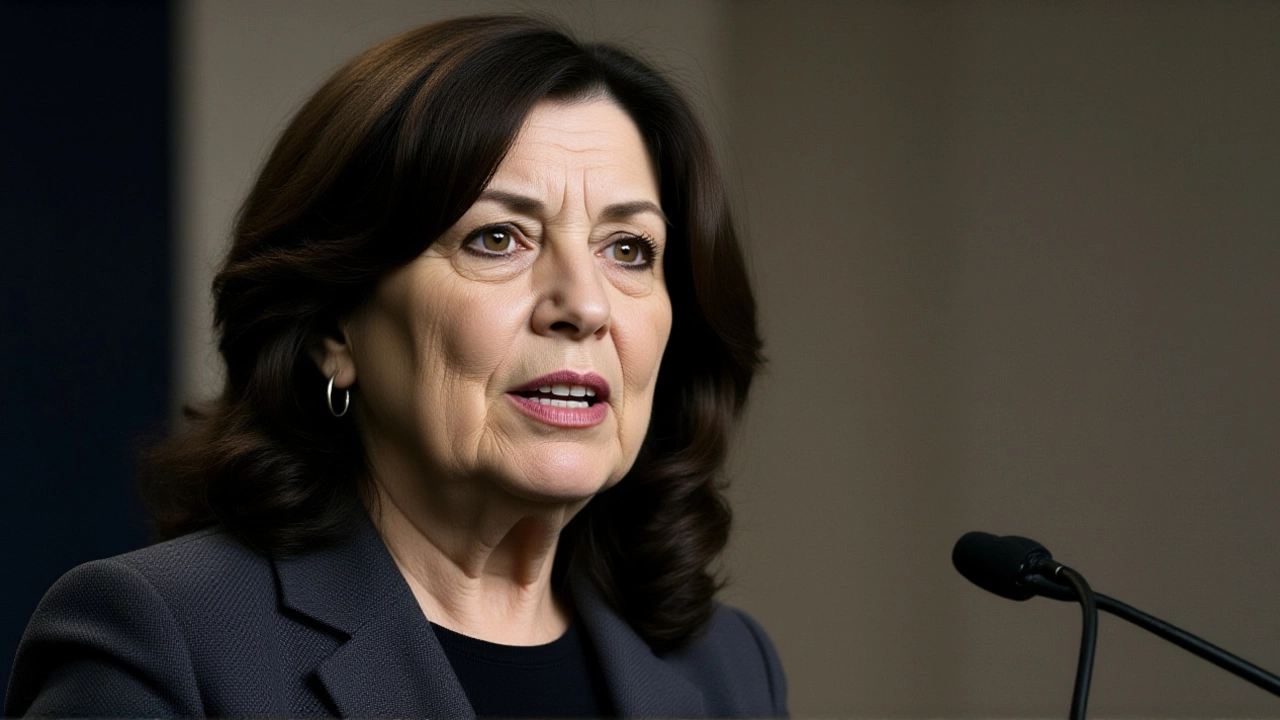
When JD Vance, Vice President of the United States brushed off a scandal involving the state’s youth GOP wing, the headline read like a bad sitcom: ‘kids do stupid things.’
The scandal erupted on after POLITICO published thousands of leaked Telegram messages from the Kansas Young Republicans (KYR). The chats were riddled with racist, antisemitic and homophobic slurs, even praising Adolf Hitler. Within hours the organization shut down its social‑media accounts and went inactive.
Background to the Leak
The Kansas Young Republicans serve members aged 18‑40 and act as the official youth arm of the Kansas Republican Party. Earlier in October, the party sparked its own controversy by posting a doctored image of Laura Kelly, the state’s Democratic governor, with a sombrero and mustache, and an animation of Laura Howard, the secretary of the Kansas Department for Children and Families (DCF), wearing a Lucha Libre mask.
Those posts were tied to a simmering standoff between the DCF and the U.S. Department of Agriculture over a federal request for data on Kansas SNAP (Supplemental Nutrition Assistance Program) beneficiaries. Howard had refused the request, citing privacy concerns for low‑income Kansans.
What the Telegram Chats Revealed
According to the POLITICO investigation, the leaked chats spanned multiple group threads involving local party operatives, a former Trump‑administration staffer, and at least one elected official whose name was omitted for safety. Sample excerpts included:
- “These black folks are just watermelon people.”
- “Gay‑rights activists are the worst – total garbage.”
- “Hitler did what needed to be done, no point arguing.”
While the messages were posted between early September and early October, they only came to light after a whistleblower handed the archive to journalists. The content sparked immediate calls for resignations and investigations.
Political Reactions
Laura Kelly condemned the chats as “horrific” and blasted the Kansas GOP for “hypocrisy,” noting that the party’s own social‑media antics undermined any genuine apology. She said, “Their words ring hollow when they continue to post offensive material that contradicts their statements condemning racism.”
The Kansas Republican Party issued a brief statement on the same day, calling the messages “abhorrent and unacceptable.” Yet the timing—just after the party’s own manipulated images went viral—left many observers skeptical.
On at roughly , Vance addressed reporters at a CNN‑covered event. His comments focused on the age of the participants rather than the hateful content: “The reality is that kids do stupid things. Especially young boys. They tell edgy, offensive jokes… I don’t want us to grow up in a country where a kid tells a very offensive, stupid joke is cause to ruin their lives.” He stopped short of denouncing the slurs themselves.
The Kansas GOP’s Own Controversy
The manipulated photographs posted by the party’s official Facebook page in the first week of October showed Governor Kelly wearing a sombrero and mustache, and an animation of Secretary Howard in a traditional Mexican wrestling mask. Those images were widely criticized as racist caricatures and as an ill‑timed retaliation amid the SNAP data dispute.
Critics argue the party’s attempts at “culture war” messaging only amplified the outrage over the youth wing’s chats. The timing suggests a coordinated effort to distract from the DCF‑USDA clash, but party insiders say the posts were simply “viral memes” gone wrong.

Implications for Kansas Politics
The fallout could reshape the state’s GOP landscape. With the national party yet to announce any disciplinary measures, local Democrats have filed formal requests for an independent investigation into any elected officials implicated in the chats.
Meanwhile, the DCF’s refusal to hand over SNAP data to the USDA has drawn attention from federal watchdogs, raising questions about state‑federal cooperation on welfare programs. If the controversy leads to legislative hearings, Kansas could see new privacy safeguards for SNAP recipients.
For young conservatives, the episode is a cautionary tale about digital footprint and the perils of “edgy” humor in private groups that can become public. Party leadership faces a choice: enforce stricter moderation policies or risk another scandal that could erode voter confidence ahead of the 2026 midterms.
What’s Next?
Key developments to watch:
- Whether the national Republican Party initiates formal sanctions against KYR members.
- If the Kansas Legislature opens a hearing on the USDA data request and the DCF’s stance.
- Potential lawsuits from civil‑rights groups over the racist images posted by the Kansas GOP.
- How Governor Kelly leverages the controversy in her upcoming policy agenda.
As the dust settles, Kansas voters will decide whether the scandal is a footnote or a turning point for the state’s political culture.
Frequently Asked Questions
How did the leaked Telegram chats become public?
A whistleblower handed an archive of the group chats to reporters at POLITICO. The outlet verified the timestamps and released the excerpts on October 14, 2025, prompting the leak.
What specific actions have been taken against the Kansas Young Republicans?
The organization deactivated all its social‑media accounts on October 14, 2025, and announced it was inactive pending an internal review. No formal disciplinary action from the national party has been announced yet.
Why did Vice President JD Vance frame the issue as ‘kids doing stupid things’?
Vance emphasized the age of the participants, suggesting the remarks were immature jokes rather than a reflection of broader party values. Critics argue this downplays the seriousness of the hateful language.
What is the connection between the SNAP data dispute and the scandal?
The SNAP data request from the U.S. Department of Agriculture heightened tensions between the Kansas Department for Children and Families and federal authorities. The party’s provocative memes about Governor Kelly and Secretary Howard emerged during this dispute, amplifying the political fallout.
How might this scandal affect upcoming elections in Kansas?
If the Republican leadership fails to address the allegations, Democratic candidates could use the scandal to mobilize voters around issues of racism and governmental transparency, potentially shifting margins in the 2026 midterm races.
